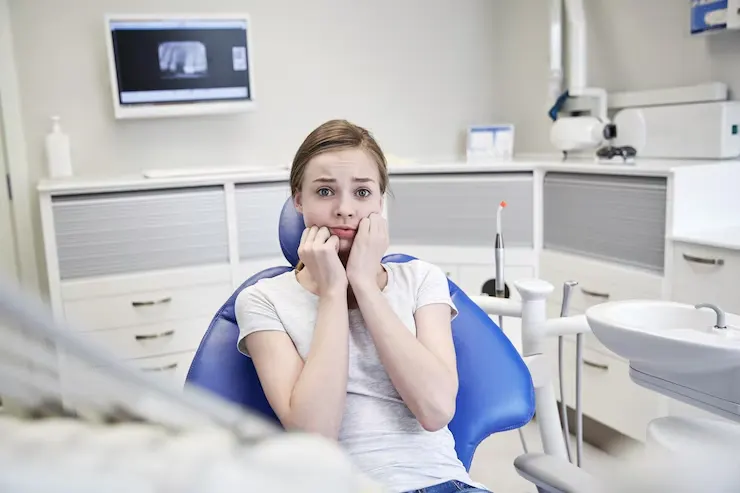Bruxism, commonly known as teeth grinding, is a dental condition characterized by involuntary grinding or clenching of the teeth. It can happen during the day or night but is most often problematic during sleep. This guide explores bruxism causes, bruxism treatment options, and practical strategies for managing this condition effectively.
Understanding Bruxism
Bruxism is the involuntary grinding or clenching of teeth, often leading to significant dental issues if left untreated. It can result in tooth damage, headaches, jaw pain, and other oral health problems. Recognizing bruxism early and seeking appropriate treatment is vital for maintaining overall dental health.Common Bruxism Causes
Understanding bruxism causes helps in effectively managing the condition. Several factors contribute to teeth grinding, including:- Stress and Anxiety: Stress is among the most common bruxism causes. Emotional stress, anxiety, and tension often manifest physically as teeth grinding during sleep.
- Sleep Disorders: Conditions such as sleep apnea, insomnia, and other sleep disturbances frequently cause or exacerbate bruxism.
- Dental Malocclusion: Misalignment or an abnormal bite can lead to uneven pressure distribution, causing involuntary teeth grinding.
- Lifestyle Factors: Excessive caffeine or alcohol consumption, smoking, and drug use (especially stimulants) significantly increase the risk of bruxism.
Signs and Symptoms of Bruxism
Recognizing the signs of bruxism is crucial to seeking timely treatment. Common symptoms include:- Flattened, fractured, chipped, or loose teeth
- Increased tooth sensitivity
- Jaw or facial pain and tightness
- Headaches, especially upon waking
- Disrupted sleep or waking up frequently
Bruxism Treatment Options
Effective bruxism treatment begins with a thorough diagnosis from a dentist. Treatment options vary depending on the severity and underlying causes:-
Dental Approaches:
Mouth Guards: Custom-fitted dental mouth guards or splints are common and effective bruxism treatments, protecting teeth from further damage during sleep. Dental Correction: Orthodontic interventions or reshaping biting surfaces can correct misalignment issues, reducing grinding frequency. -
Behavioral Therapy:
Techniques such as cognitive-behavioral therapy (CBT) or biofeedback therapy help manage stress and anxiety, significantly decreasing episodes of teeth grinding. -
Lifestyle Modifications:
Reducing caffeine and alcohol consumption, quitting smoking, and managing stress through yoga, meditation, or regular exercise can alleviate symptoms and decrease bruxism episodes. -
Medications:
Muscle relaxants, antidepressants, or anxiety medication might be prescribed by healthcare providers in severe cases to manage symptoms effectively.
Preventive Measures for Bruxism
In addition to specific bruxism treatments, preventive measures can significantly reduce the impact of teeth grinding:- Practice relaxation techniques to manage stress
- Ensure regular dental check-ups for early detection and management
- Maintain proper dental hygiene to prevent oral health complications
- Be mindful of dietary and lifestyle habits
FAQs on Bruxism (Teeth Grinding)
-
Is bruxism harmful if left untreated?
Yes, untreated bruxism can cause significant dental damage, jaw disorders, headaches, and increased tooth sensitivity. -
Can children develop bruxism?
Yes, many children experience teeth grinding, especially during sleep. Often, they outgrow it, but ongoing cases require professional evaluation. -
Is stress always a factor in bruxism causes?
Stress is a common but not the sole cause. Other factors include dental misalignment and certain medications. -
Are night guards effective as a bruxism treatment?
Yes, night guards effectively prevent tooth damage and ease symptoms associated with teeth grinding. -
Can bruxism be permanently cured?
While there's no universal cure, proper management through lifestyle changes, stress reduction, and dental interventions significantly reduces its impact. -
Does bruxism affect sleep quality?
Yes, teeth grinding disrupts sleep quality, causing fatigue, headaches, and reduced overall health. -
Can medication help in bruxism treatment?
Medications like muscle relaxants or anxiety-reducing drugs can help manage severe cases, although they aren't usually first-line treatments. -
How can I know if I grind my teeth during sleep?
Common signs include jaw pain, headaches, tooth sensitivity, and damaged teeth. Your partner might also notice the grinding noise. -
Can teeth grinding cause permanent damage?
Continuous grinding can lead to permanent tooth wear, damage, and jaw complications if not addressed early. -
Is teeth grinding hereditary?
Research indicates a possible hereditary component, but environmental factors play a significant role.


